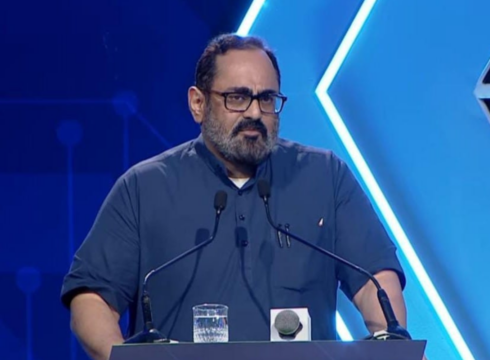By the end of March or early April, we are launching the India AI programme, which will be one of the largest publicly available datasets in the world, Chandrasekhar said
India AI ecosystem, working with other spaces like fintech and more, will catapult and catalyse the transformation of the next generation of tech segments
Centre’s aim is to keep the internet safe and trusted for all digital citizens, the minister said
Inc42 Daily Brief
Stay Ahead With Daily News & Analysis on India’s Tech & Startup Economy
India is all set to have an artificial intelligence (AI) programme with large datasets by the end of March or early April, Union Minister of State for electronics and IT Rajeev Chandrasekhar said on Tuesday (March 7).
“We are launching by the end of March or early April the India AI programme, which will be one of the largest publicly available datasets in the world with three centres of excellence as the government of India announced recently in the Budget,” said Chandrasekhar, speaking at an event in Mumbai.
Finance minister Nirmala Sitharaman, during the Union Budget 2023, had said that the country would set up three centres of excellence for AI in top educational institutions, as a step to realise the vision of making AI in India.
Speaking at the event, Chandrasekhar said that the India AI ecosystem, working with other spaces like fintech and more, will catapult and catalyse the transformation of the next generation of these tech segments.
Speaking about how the fintech space has evolved in India, he said that the emergence of India’s fintech ecosystem has amongst the highest fintech adoption rates in the world, at 87%, as opposed to the world average of 67%, with UPI playing a major role in this shift.
Chandrasekhar said that as part of India’s digital economy, there are going to be thousands of entrepreneurs in areas as diverse as blockchain, AI, and semiconductor innovation, among others.
However, amid this rapid evolution in the tech and internet space, the Indian government aims to keep the internet safe and trusted for all digital citizens, he said, pointing at the regulatory measures the Centre is taking, including the Digital Personal Data Protection (DPDP) Bill and Digital India Act.
It is pertinent to note that amid criticism from various stakeholders, the Centre introduced the draft DPDP Bill in November last year, months after withdrawing the Personal Data Protection Bill, 2021.
“…for all of those who are very intimidated by the previous draft, this is a bill that has three central objectives – number one, that the bill will not create any hiccup or road bump or any sort of hurdle to the innovation ecosystem growth,” Chandrasekhar said.
“…in the DPDT, first, innovation momentum will continue, citizens’ rights will be protected, and the exceptional circumstances under which the government has to have access to personal data in emergent situations will also be permitted,” he said.
As per the MoS, the Centre’s Digital India Act is a “global standard contemporaneous legislation” that addresses the future of the internet and the issues pertaining to openness, user harm, and accountability on the internet.
For the uninitiated, the Digital India Act would replace the IT Act, 2000. The minister said that the discussions around its architecture are starting this week.
It must also be noted that amid an overhaul of legislation and changes brought in the country’s tech ecosystem, the central government has formed a ten-member committee to also explore the scope of a new digital competition law in the country.
India is expected to become a $1 Tn digital economy by 2025.
Note: We at Inc42 take our ethics very seriously. More information about it can be found here.


